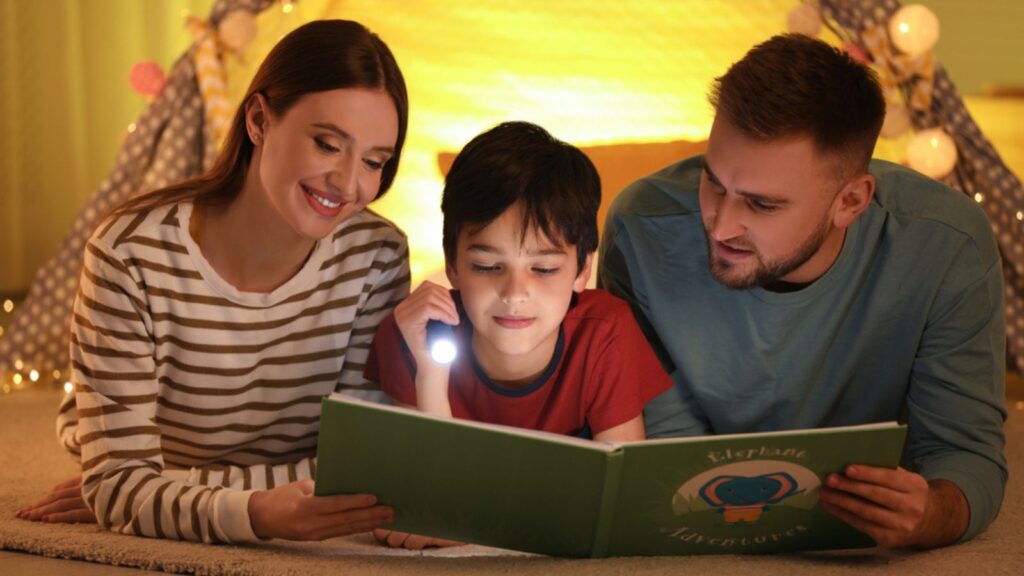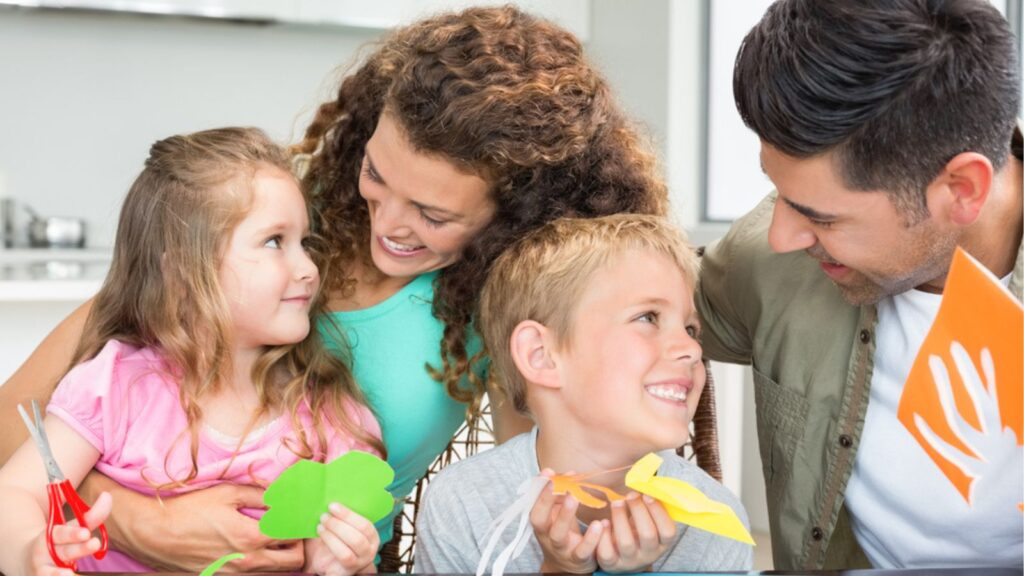14 Meaningful Ways for Parents to Connect Better with Their Kids
This post may contain affiliate links. As an Amazon Associate, I earn from qualifying purchases.
When we first meet our little bundles of joy, it’s hard to imagine a life without them right by our side. However, they grow up, and we have to go and work, and we no longer seem to be as connected to them as we’d have wanted. Despite the racing world, work deadlines, and distracting technology, creating meaningful bonds with our kids is vital for their emotional and psychological development (and everyone’s happiness).
UNICEF advises that connecting with your child is crucial for their brain growth, self-esteem, success potential, and ability to form relationships. It establishes the foundation for them to develop into compassionate, self-assured, and strong individuals.
How can you deepen your connection with children and turn everyday moments into lasting memories? Whether through shared activities, meaningful conversations, or setting aside quality time, here are a few ways to nurture a strong, loving relationship with our children.
1. Hold Regular Family Meetings

Yes, we live with them (our kids), but it’s possible to not have meaningful contact with our children despite waking up in the same house. Create regular family meetings to help you communicate better and give everyone a voice. You can use this time to discuss the week’s events and any concerns they may have.
This regular, uninterrupted time together fosters an environment of openness and trust, enabling kids to feel more connected to their parents and siblings. Encourage every member to share their highs and lows and express gratitude towards each other. Plus, you can set goals together, too!
2. Have Storytelling Nights

Sitting around a fire telling stories is a lost art we need to bring back. Create a storytelling tradition where family members alternate nights to tell a story. These stories can be about anything – a memorable childhood experience, an ancestral tale, or an entirely made-up adventure. Storytelling nights spark creativity, laughter, and learning.
This practice entertains and allows family members to share parts of themselves. Kids learn the art of storytelling, improve their listening skills, and gain insights into their family’s values, history, and imagination.
3. Cooking Together

Cooking doesn’t just give the family something to eat for dinner; it’s also a great way to connect. It offers a hands-on experience that teaches kids about nutrition and how to be independent. You can even compile a family cookbook with beloved recipes that will be passed down for generations.
This time spent together educates them about healthy eating habits and nurtures teamwork. They’ll also learn resilience from the meals that backfire after all the hard work.
4. Go On Outdoor Adventures

Some of the best life is lived outdoors, and nature is a great venue to connect with your children. Plan regular outdoor activities with your kids, such as hiking, biking, or beach days. Nature offers a peaceful break from tech, and the kids will benefit from lifting their little noses off the iPad.
Encourage exploration and curiosity about the natural world during these outings. You will likely answer many questions and maybe piggyback some on the way home, but it’ll be all worth it.
5. Create Some Art and Craft Projects

Participating in arts and crafts activities that align with your child’s hobbies is another awesome way to create the connection you seek. From painting and model building to creating holiday ornaments, such activities encourage creativity and offer a solid project for both of you to collaborate on.
This fosters a feeling of achievement and paves the way for deep conversations. Showcasing the completed art pieces at home can evoke a sense of pride in your child and serve as a reminder of the precious moments spent together.
6. Volunteer Together

Selecting a cause or community service activity to engage in with your child helps you bond as they learn some virtue. Volunteering fosters empathy, accountability, and the value of contributing to society. It’s a great way to help your child learn about kindness and see different aspects of the world.
Sharing experiences fosters discussions on gratitude, empathy, and community service. This not only deepens bonds but also contributes to the greater good.
7. Have Shared Reading Time

As many adults who had their parents read for them will tell you, few things make a child feel good and connected than a good story from daddy or mommy. Set aside time for reading together, whether it’s a bedtime story for younger children or a book club for older kids. Read the same book and discuss it.
Reading boosts imagination, vocabulary, and a love for books. Talking about books can spark fun chats, helping you learn about your child’s thoughts and feelings. It teaches them to share their ideas and listen to others.
8. Learn a New Skill or Hobby Together

Learning a new skill or hobby together will bring you closer to your kids. Learn a musical instrument, acquire a new language, or engage in a sport. Embracing this challenge as a team presents a chance to evolve collectively and fosters an attitude of continuous learning.
Committing to practice and enhancement teaches your child the importance of diligence and discipline. This shared support is essential for building helpful skills that may even guide them into future careers.
9. Plan a Vacation

Get your kids involved in making up vacation plans, whether they’re real or just for fun. Look up places together, check out pictures, and talk about fun things you could do. This can be a fun way to use your imagination and bond, even if you don’t actually go on these trips (although it’d be nice to go).
This task helps children learn about various cultures, geography, and planning skills. It reassures them that their views and aspirations matter, boosting their self-esteem and making them feel included in the family.
10. Exercise Together

They are still children, but exercise can be very helpful to them and a way to bond with you. Choose activities that can be done together, such as cycling, yoga, or swimming. Consistent physical activity is crucial for maintaining physical health and mental wellness.
This also instills in children a lifelong habit of staying active and caring for their physical health. Engaging in it as a family strengthens bonds and helps children learn to finish what they started.
11. Have a Game Night Tradition

Children will remember the fun nights more than the expensive toys when they are older. Start a regular family game night to play board games, card games, or video games together. Choose from classics like Monopoly and Scrabble or active games like Charades, depending on space and weather.
Game nights offer a fantastic opportunity for kids to learn teamwork, strategy, and the importance of fair play. They also provide plenty of laughter and create memories that last a lifetime.
12. Create DIY Projects Together

One of the most excellent ways to create fun times is to get a little dirty together. Tackle a do-it-yourself home improvement project together, such as painting a room or creating a garden. You could even redecorate their rooms together.
This teaches them valuable practical skills and allows for creative expression. It’ll make them proud to have created something.
13. Hold a Music and Dance Party

Song and dance are still among the most fun activities, especially for kids. Throw impromptu music and dance parties in your living room, especially after a hard day, to relieve stress and connect while enjoying your favorite songs.
Create a family playlist where each member can add their favorite songs. Dancing and singing together can be liberating and a great way to express yourself.
14. Have Tech-Free Days

Today, we are getting lost in technology, barely looking at each other even when in the same room. One of the most awesome ways to connect with your kids is to plan regular tech-free days. Set aside all electronic devices and encourage everyone to engage in offline activities and talk to each other.
This helps balance digital and real-world interactions and emphasizes the value of direct communication. Psychologists suggest that children often behave better and feel more secure when they’re not constantly attached to electronic devices.
20 Strong Words Parents Should Never Say to Their Kids

Countless adults sitting in a therapist’s office today are grappling with the lasting impact of words spoken by their parents during childhood. Regardless of how you perceive yourself, in your child’s eyes, you are nothing short of the most remarkable thing to happen to them since “skip intro.” This underscores the critical importance of being mindful of what you say to your children, as your words become the small but influential voice in their developing minds.
20 Strong Words Parents Should Never Say to Their Kids
16 Common Phrases Grandparents Should Stop Saying to Their Grandkids

Do you still remember something your grandparents said that made you uncomfortable? As much as we adore our grandparents, their words (even with good intentions) can sometimes hurt our feelings or are plain embarrassing.
If you are a grandparent, using your words mindfully around your grandkids is as crucial as any other relationship. Words hold immense power and shape our kids’ behaviors and perceptions.
16 Common Phrases Grandparents Should Stop Saying to Their Grandkids







